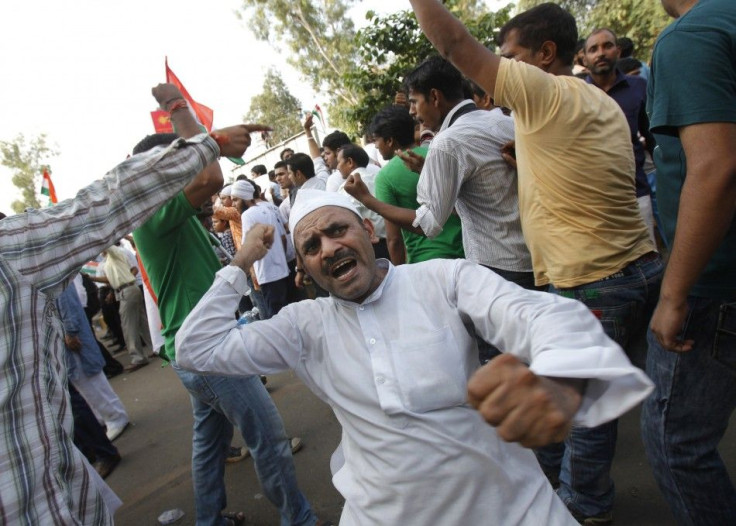Anna Hazare 'Arrests' Govt; India Demands Reforms

The arrest of 74-year-old Anna Hazare and the crackdown on the peaceful protest against the tooth-less anti-corruption bill by the Indian government might boomerang against the already troubled government.
With the arrest of the Gandhian, Manmohan Singh-led United Progressive Alliance (UPA) government has indirectly shown its support towards graft against which the country has already shown its anger four months ago.
Anna's arrest sparked huge protests and rallies across the country with people taking it to the streets.
The support for the Jan Lokpal Bill (Citizen's Ombudsman Bill) came not only from India, but also from America where the Indian students studying in different universities supported Anna Hazare's "War Against Corruption".
A group of students went to the Indian Assembly in Washington on Sunday and submitted a memorandum addressed to the President of India.
"We as non-resident Indian citizens, unequivocally condemn the attitude of GOI (Government of India), and demand your intervention into the matter. By failing to curb corruption, and by denying the constitutional rights to its citizens, we believe the government has lost moral authority to govern," the petition said.
The Congress-led government in India tried its best to stop the declared protest of Team-Anna, which was going to start from Aug. 16, a day after the nation's 65th Independence Day.
The Delhi administration did not allot Team-Anna to hold its protest at Ramleela Ground, where the fast was going to be observed as planned earlier, creating confusion over the venue. After deciding on the venue, on Saturday, the Delhi Police, administered by Union government, laid down more than 20 conditions, including a crowd of not more than 5,000 and three days limit for the fast.
On Tuesday, Anna Hazare along with his supporters, including former IPS officer Kiran Bedi, RTI activist Arvind Kejriwal, and Prashant Bhushan was arrest and lodged in Tihar Jail. Later in the day following strong protests over his arrest, government decided to release Anna as keeping him in the jail could create law and order problems in the country.
Anna refused to leave the jail and said that until he is given a venue for his fast without any condition for at least a month, he will hold his fast in the jail itself. Anna's supporters were released in the evening while Anna remained in the jail where Congress MP and Commonwealth Games scam accuses Suresh Kalmadi and former telecom minister A Raja are lodged.
A Raja is accused in a graft case in 2G spectrum allotment.
Meanwhile, an RTI activist and supporter of Anna's anti-graft campaign was shot dead in capital of India's central state of Madhya Pradesh. Shehla Masood, 39, was shot in her car by unidentified assailants when she was leaving to attend a signature campaign in support of Ann's protest.
"A single shot was fired at her. Investigations are on to ascertain the motive and the identity of the killers," said Shailendra Srivastava, inspector general of police, Bhopal.
Wednesday also witnessed protests across the country. With Delhi being the base camp of the strong agitations, satellite protests were held in whole nation to support the cause. Students, IT employees, activists, lawyers and people from different walks of life gathered in almost all big cities and showed their anger towards the government and the increasing corruption, which they feel is the biggest hurdle in the progressing countries growth.
Corruption in India on an average costs the Indian economy around 1 percent to 2 percent of GDP per year.
In just one year the government was rocked by scams relating to organizing the Commonwealth Games and allotment of 2G spectrum.
Where the amount of CWG scam reached Rs 8000 cr, 2G scam became the biggest scam of India with an amount of over Rs 1 lakh crore.
The nation's political situation may now be in more trouble with this agitation swelling up. It will also hurt an economy facing inflation of above 9 percent and in dire need of reform.
© Copyright IBTimes 2024. All rights reserved.











